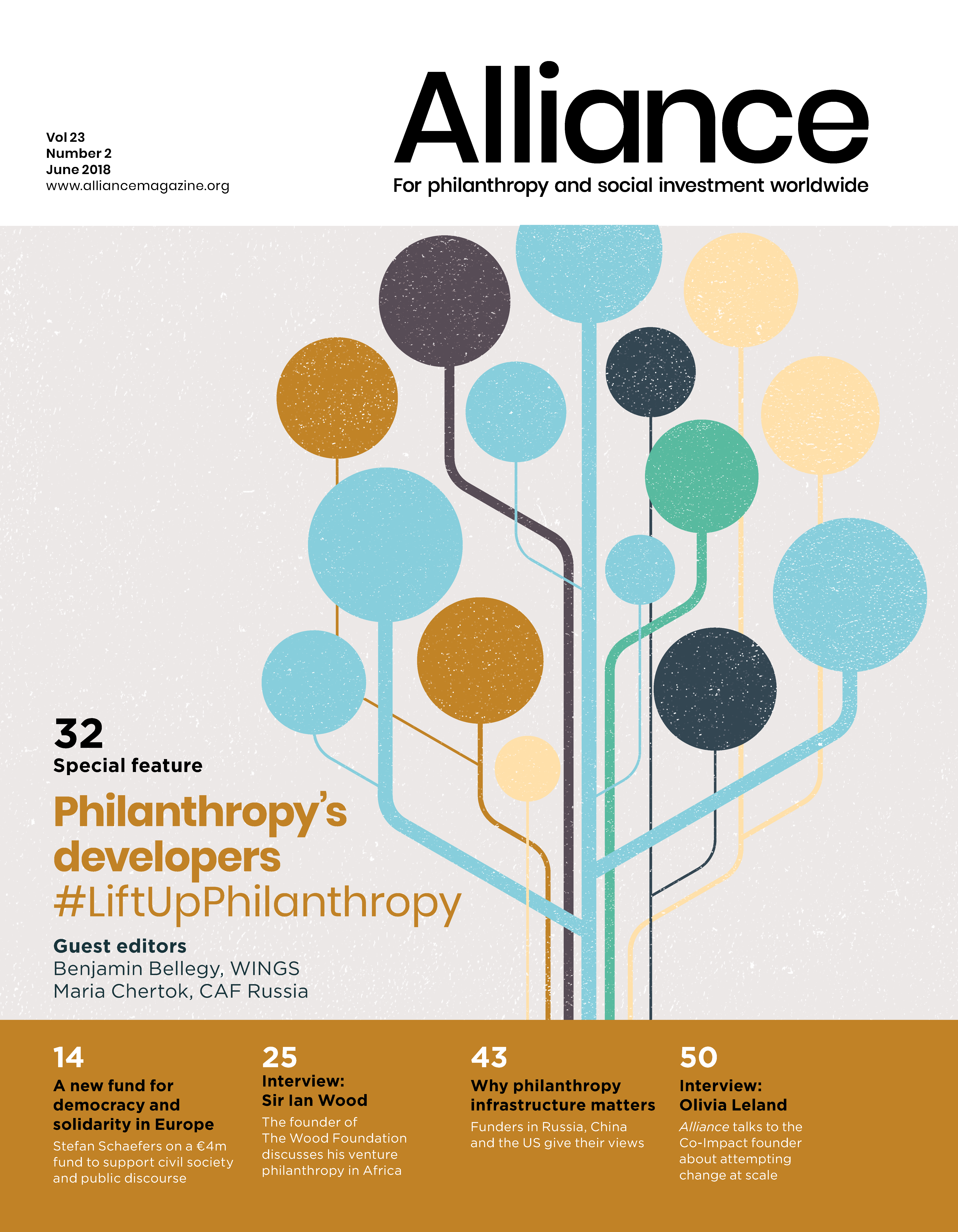As a philanthropist and philanthropic practitioner from the African American diaspora, I was initially excited to explore your issue on Diaspora philanthropy and excited to know that philanthropy by and for communities from myriad diasporas around the world might find an audience among the mainstream philanthropic community. For those of us for whom this work is core to our culture, it is in no way a ‘trend’ as I’ve often heard my colleagues refer to it. However, the graphic you chose for the cover of the issue I found to be unfair to the diversity of traditions, backgrounds and experiences of many diaspora communities.
If a picture is worth a thousand words, what exactly was the magazine trying to convey with this graphic? A typical grant recipient? Poverty, instability or transience? Immigrants or refugees? While I am of African descent I am not an immigrant, I was never transient, and I’m grateful I never had to flee conflict. I was born and raised in one country. I am constantly humbled by, and try to honour, the path of those who have been forced to traverse the world, but that is not every person’s reality – from any diaspora. While I understand your aim might have been to highlight the movement of people across borders, that is not our entire existence. Our philanthropy is not about movement, it is literally about love of humankind. And whether someone’s movement is due to circumstances, or by choice, they inevitably take community with them.
Finding one photo or graphic to represent every diaspora would be impossible. However, I am confident the magazine could have found a picture that depicted the ancient history of giving, wealth, beauty, intelligence or love of humankind reflected in the values of the religions and/or cultures of the countries and communities explored in this issue. Because no matter what each person’s experience might look like, visualizations of philanthropy – caring for, loving, and supporting community – could easily resonate with everyone.
The definition of our work calls us to be more thoughtful, empathetic, compassionate and reflective. And many colleagues will admit that, as a sector, we do not do this well. I know and understand my privilege; I’ve benefited from resources, opportunities and access, and being an African American woman in no way absolves me of those responsibilities. Whether you find yourself working in philanthropy, or this is your calling, and whether you’re within a philanthropic institution, or you’re doing this work with your family, we must all push ourselves to do, be and say better. We are obliged to hold our colleagues and the sector accountable, and to constantly explore and reflect on how we enter and occupy spaces in our global society.
Yvonne Moore
Principal philanthropic advisor,
Moore Philanthropy





Comments (0)